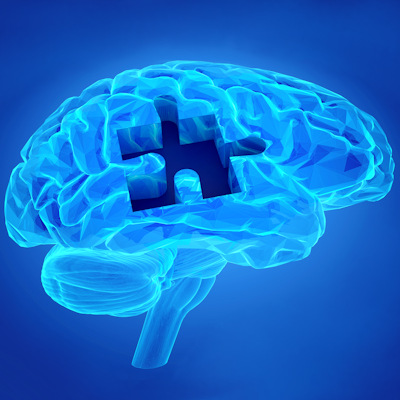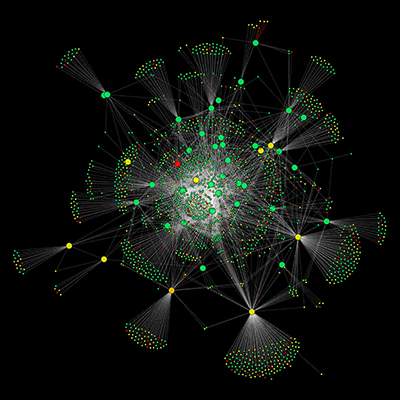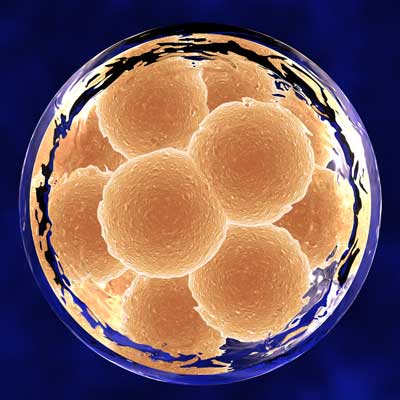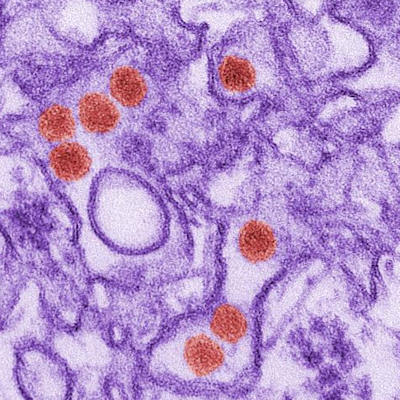 Aiming targeted protein degradation at kinase unlocks potential way to treat Alzheimer’s
Aiming targeted protein degradation at kinase unlocks potential way to treat Alzheimer’s
A targeted protein degrader could break apart a kinase implicated in Alzheimer’s disease to improve the cognitive abilities of patients with the neurodegenerative condition, according to a study published March 1 in ACS Central Science. Read More
 Toxic protein linked to both muscular dystrophy and arhinia
Toxic protein linked to both muscular dystrophy and arhinia
National Institutes of Health (NIH) researchers and collaborators have found that DUX4, a toxic protein made by the body, may be responsible for two very different rare genetic disorders. The study, published on Friday in Science Advances, may eventually lead to therapies that can help people with a type of muscular dystrophy, as well as those with a facial malformation called congenital arhinia. Read More
 MIT researchers record cellular memories through protein chains
MIT researchers record cellular memories through protein chains
Using engineered proteins, MIT researchers have designed a system in which they can record “memories” of sequences of cellular events, such as when certain genes are activated, or how cells respond to a drug, as cells turn on series of genes and pathways in performing functions. Read More
 CRISPR edited rat embryos reveal cause of rare pediatric neurodegenerative disease
CRISPR edited rat embryos reveal cause of rare pediatric neurodegenerative disease
Using CRISPR gene editing technology on rat embryos, University of Wisconsin-Madison researchers have revealed the mutation that is responsible for progressive gait abnormalities and other symptoms in human infants and young children with a rare neurodegenerative disease. Read More
 Machine learning may accelerate solutions to address protein design challenges
Machine learning may accelerate solutions to address protein design challenges
Machine learning can be used to create protein molecules much more accurately and quickly than previously possible, with the potential for developing new treatments and vaccines, according to biologists at the University of Washington School of Medicine. Read More
 Genomics profiling reveals how Zika infects immune cells, suggests antiviral target
Genomics profiling reveals how Zika infects immune cells, suggests antiviral target
A genomics profiling method has revealed how the Zika virus infects human dendritic cells, pointing to a potential target for therapeutic suppression of the pathogen. Read More
 MIT team finds limitations of AlphaFold’s AI protein structures in drug discovery
MIT team finds limitations of AlphaFold’s AI protein structures in drug discovery
Advances in the modeling of protein-ligand interactions are needed to realize the potential of the artificial intelligence (AI) AlphaFold database of protein structure predictions in drug discovery, according to a new paper from researchers at the Massachusetts Institute of Technology (MIT). Read More
 Imaging technique reveals previously unseen nanostructures in brain tissue
Imaging technique reveals previously unseen nanostructures in brain tissue
Swellable hydrogels have enabled researchers to “decrowd” biomolecular structures in cells and tissues, revealing previously hidden nanostructures and providing imaging of the structure of Alzheimer’s-linked amyloid beta plaques in greater detail than has been possible before. Read More
 Harvard’s Wyss Institute spins out protein detection technology to create Spear Bio
Harvard’s Wyss Institute spins out protein detection technology to create Spear Bio
The Wyss Institute for Biologically Inspired Engineering at Harvard University has licensed technology for detecting proteins in small patient samples to a newly formed startup. Read More
 NIH team creates 3D structure of twinkle protein, sheds light on mitochondrial diseases
NIH team creates 3D structure of twinkle protein, sheds light on mitochondrial diseases
Researchers from the National Institutes of Health (NIH) have used cryo-electron microscopy and other techniques to create a 3D structure of the twinkle protein, the final piece of the human minimal mitochondrial replisome to be structurally characterized. Read More
Conferences
Science Briefs
Member Rewards
Earn points for contributing to market research. Redeem your points for merchandise, travel, or even to help your favorite charity.
Research Topics
Interact with an engaged, global community of your peers who come together to discuss their work and opportunities.
Conferences
Connect
Tweets by @ScienceBoard






